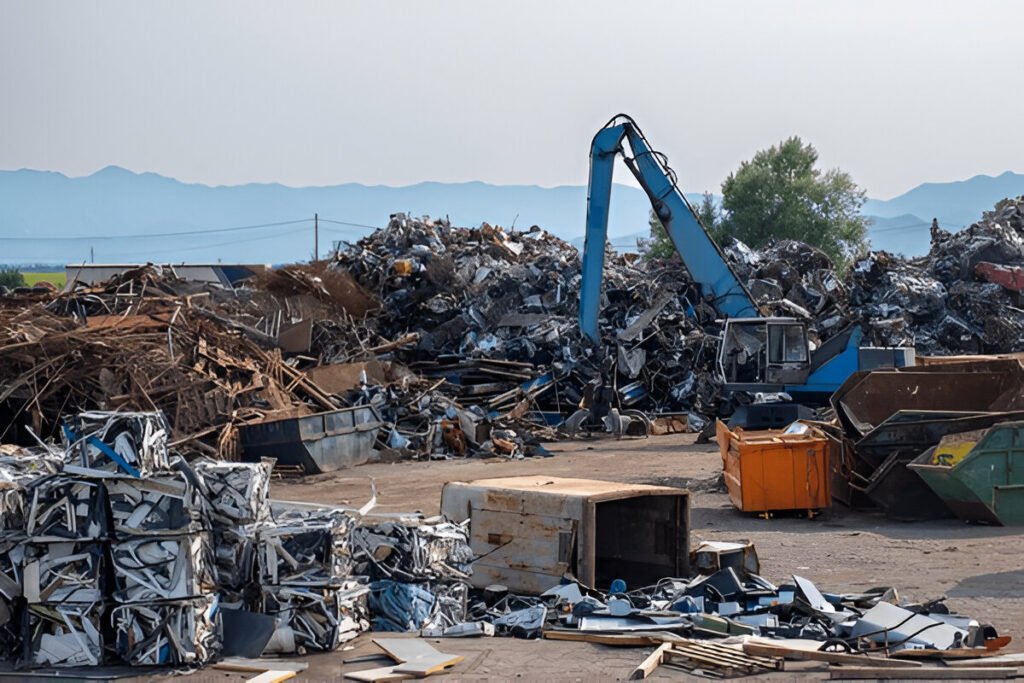When it comes to industrial recycling, not all scrap is created equal. One of the most common questions in the scrap metal world is: What’s more valuable—scrap wire or scrap cable? Understanding the difference and how to recycle each efficiently can help you maximize your returns, especially if you’re working in construction, demolition, or electrical industries.
In this blog, we’ll break down the differences between scrap wire and cable, which is more valuable, how the recycling process works, and how you can boost profits through smarter industrial recycling decisions.
Understanding Scrap Wire vs. Scrap Cable
Scrap wire generally refers to single strands of metal (usually copper or aluminum) used to conduct electricity. These are typically found inside homes, vehicles, and machinery. Cables, on the other hand, consist of multiple wires bundled together and insulated. They’re used in larger, industrial-grade electrical systems.
From a recycling perspective, both materials are valuable, but scrap wire usually has less insulation and more pure metal, making it easier and more profitable to recycle.
If you’re looking for reliable scrap wire buyers that offer good prices, partnering with experienced industrial recycling companies is your best move.
Why Industrial Recycling Matters
Scrap isn’t just waste—it’s an opportunity. The global scrap recycling industries are worth billions, and smart businesses know how to tap into that value by working with professionals in industrial recycling.
Whether you’re handling excess wiring from a demolition job or dismantling industrial equipment, recycling wire and cable helps:
- Reduce landfill waste
- Lower production costs for new materials
- Conserve energy and resources
- Earn cash back on unused or outdated components
What Impacts the Scrap Value?
When comparing scrap wire and cable, the scrap value is influenced by several factors:
- Metal Content: Copper wires have a higher resale value than aluminum.
- Insulation Type: The thicker the insulation, the more labor needed to strip it—meaning less profit.
- Cleanliness: Clean, separated wire fetches more than mixed or dirty scrap.
- Market Prices: Scrap metal prices fluctuate daily based on demand and availability.
To ensure maximum value, consider working with a certified industrial scrap metal buyer that offers fair rates and full-scale dismantling services.
Tips to Maximize Scrap Returns
Whether you’re dealing with a single spool of cable or a full truckload of industrial scrap, here are a few tips to boost your profits:
1. Strip Your Wire When Possible
Manually stripping thick copper wire can drastically improve your payout. While it’s labor-intensive, the pure copper inside is highly valuable.
2. Sort and Separate
Keep aluminum, copper, insulated, and bare wires in separate bins. Sorting helps recyclers process your material faster and pays you more.
3. Avoid Mixing Non-Metal Materials
Remove plastic ties, steel connectors, and non-metal components. Keeping your scrap clean boosts its value.
4. Partner with the Right Scrap Buyer
Choose reputable industrial recycling companies that offer services such as transformer dismantling and industrial liquidation for better convenience and pricing.
Where to Recycle Industrial Scrap?
If you’re located in the U.S. and searching for Top industrial scrap buyers, JJ Liquidations is a trusted name in the field. Whether you’re managing a full facility closure or simply clearing out scrap from a project, they handle everything—from scrap equipment buyers to decommissioning transformers and heavy-duty systems.
JJ Liquidations also specializes in industrial scrap metal and offers full support for complex jobs such as:
- Power plant dismantling
- Industrial scrap metal recycling
- Large-scale wire and cable recovery
Why Choose Professional Scrap Buyers?
The difference between a basic scrap dealer and a professional buyer lies in transparency, service, and payment. A good buyer will:
- Offer accurate on-site weighing
- Handle logistics and transport
- Provide certificates of recycling when needed
- Guarantee fair market pricing
So if you’re ready to start selling your metal for cash, consider reaching out to a trusted name in industrial scrap.
Final Thoughts
Scrap wire and cable might seem like leftover junk, but with the right knowledge and recycling partner, they can become a consistent source of revenue. From construction leftovers to large-scale demolitions, efficient industrial recycling of these materials can save the environment—and make you money.
Remember: the cleaner and more sorted your scrap, the better your payout. And when in doubt, lean on experienced recyclers like JJ Liquidations to handle the heavy lifting.



